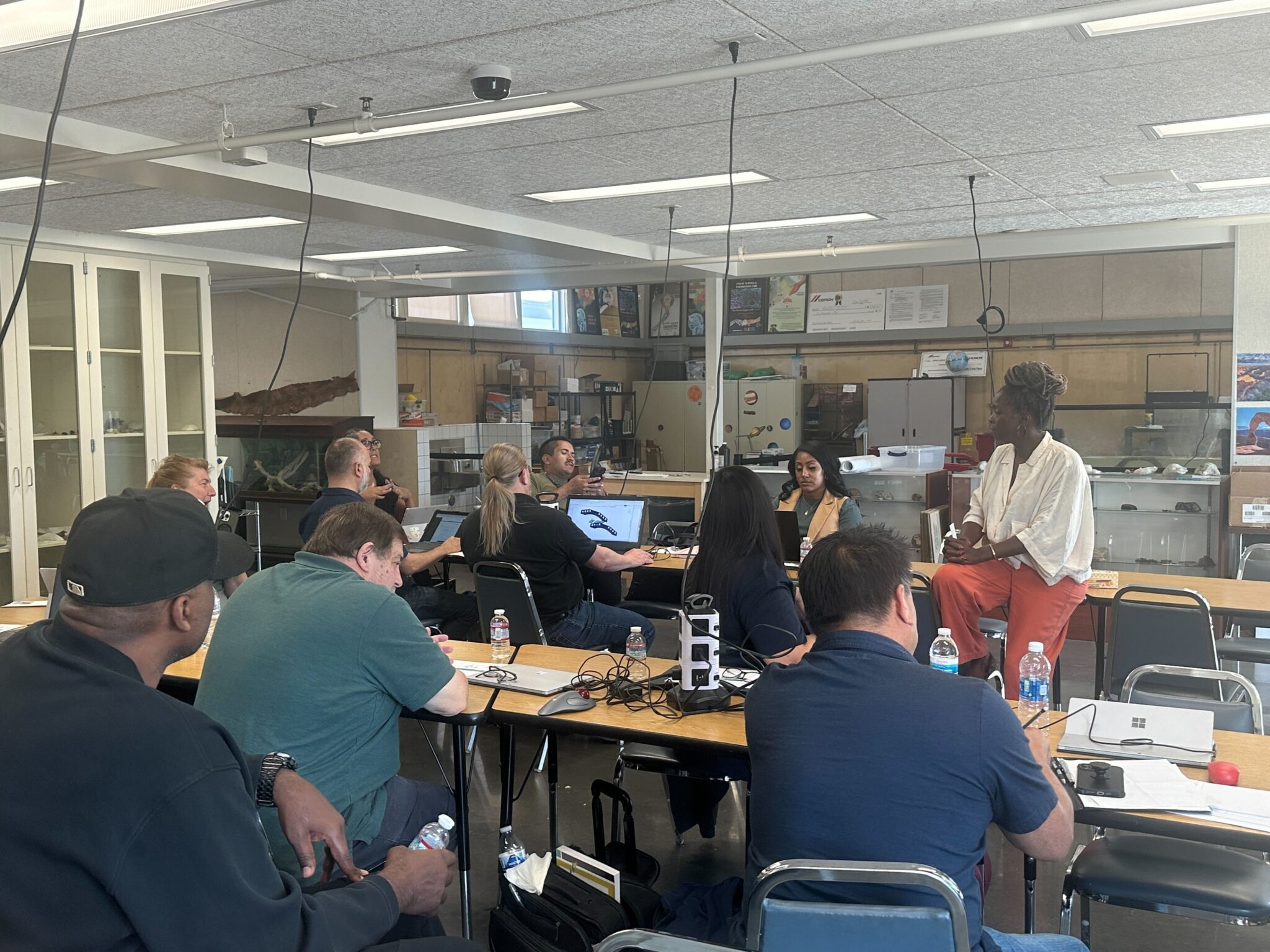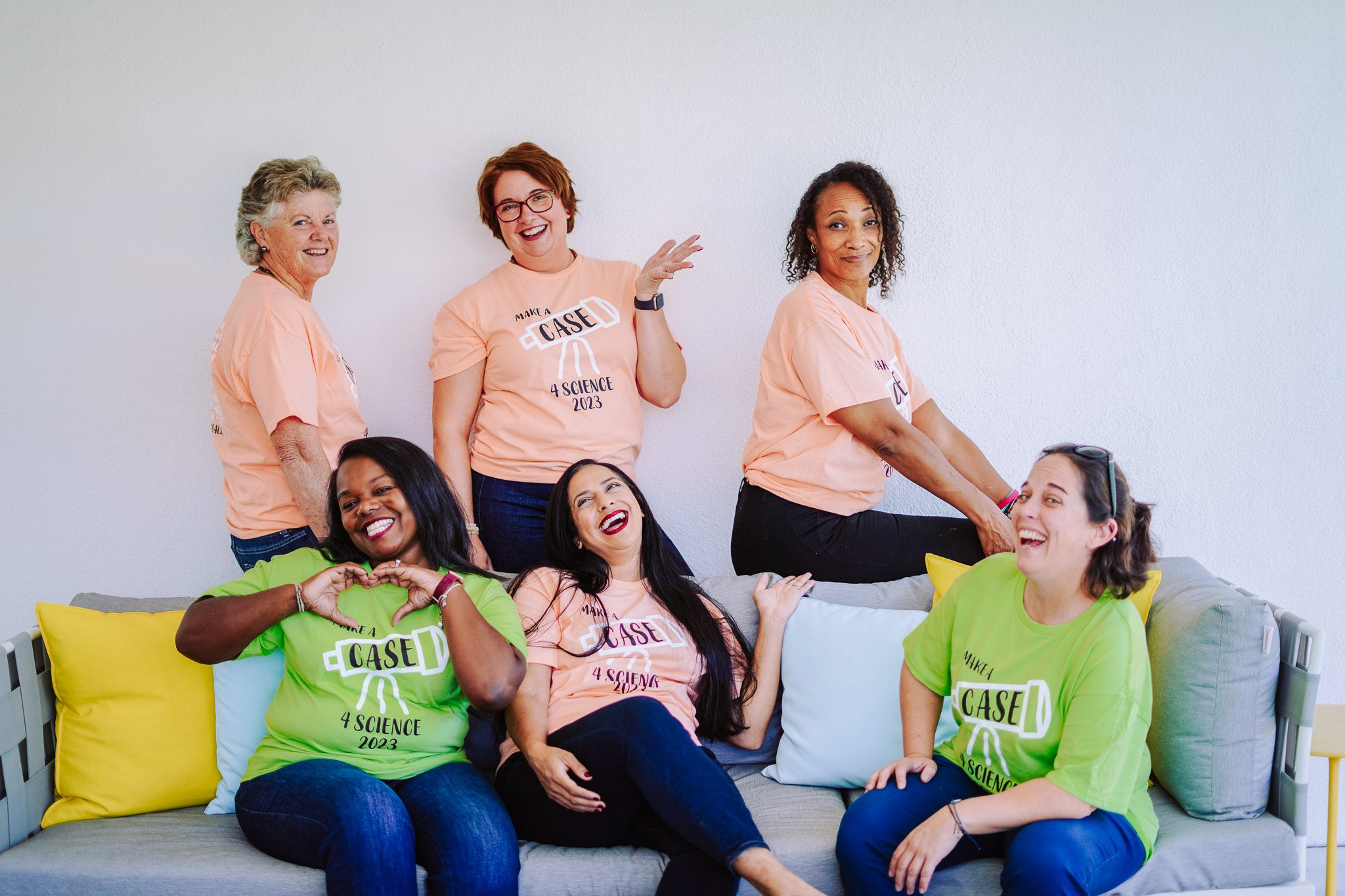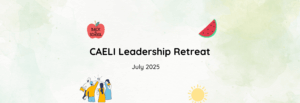As our planet has warmed and new technologies are needed to combat human-made climate change, STEM (Science, Technology, Engineering, and Mathematics) has become more intertwined with environmental learning. This interdisciplinary learning approach focuses on critical thinking, problem-solving, creativity, and collaboration, which are critical to expanding new and old technologies to help in the climate fight and to prepare students for a wide range of environmental or climate careers.
STEM4Real recognizes the need to address the equity gap in STEM and support all students to excel no matter their race, ethnicity, or socioeconomic status. Last month, we sat down with Leena Bakshi McLean, founder and executive director, and Tashanda Giles-Jones, STEM4Real’s instructional coordinator, to talk about growing representation in STEM, navigating their work in 2024, and how CAELI and collaboration have helped them succeed.
Representation in STEM and Environmental Science
Leena opened the conversation by highlighting how STEM4Real is directly addressing those gaps. “I want our students to see themselves in the work that we do. And the world of environmental science is not diverse. I don’t know how or why it happened that way when so much of environmental injustice affects communities of color and countries around the world that are just getting taken advantage of.”
When the leadership in these fields predominantly comprises white men, it creates a disconnect for students of diverse backgrounds who aspire to pursue careers in STEM. Leena’s idea to create STEM4Real was born out of this necessity to showcase real-life scientists and engineers of color, allowing students to see representation in these fields. By showcasing the contributions and stories of professionals like Dr. Tyrone Hayes, Bakshi aims to inspire the next generation and challenge the prevailing narrative in environmental science.

Tashanda further emphasizes the importance of diversity in policy work, recalling her high school days when she never saw herself represented in the statistics and leadership roles in public policy. “I just remember being in high school, always being very interested in being a leader in spaces of awareness. And redoing a lot of reading around being a leader in policy work and never seeing myself in it.”
The Current Backlash to DEI and Impact on Education
STEM4Real is committed to bringing more representation to STEM by focusing on three core principles: Connect, Create, and Cultivate. The organization aims to connect with students, families, and communities to understand their unique histories and needs. This connection serves as the foundation for creating comprehensive, standards-based content that integrates environmental science with core subjects like math and science, ensuring broad accessibility and equity. Lastly, STEM4Real is committed to cultivating anti-racism by addressing systemic biases within educational systems and amplifying the voices of BIPOC individuals in STEM and environmental science.
The organization’s programs seek to address the challenges posed by existing systems by empowering both students and teachers. Through engaging and supporting educators, STEM4Real believes they can foster a transformative shift in mindset and teaching practices that lead to a more inclusive and equitable learning environment for all.
Navigating the complexities of DEI (Diversity, Equity, and Inclusion) in education can be a bit like walking on a tightrope, as Leena pointed out. She noted a shift and decreased interest in equity and inclusion within education and personal development programs. The conversation illuminated the challenges faced in implementing DEI initiatives, especially when they’re perceived as temporary trends rather than lasting commitments. Despite these hurdles, Leena emphasized the importance of data-driven conversations to address racial disparities in educational outcomes. Tashanda reinforced this sentiment, highlighting that conversations about anti-racism and equity are crucial for preparing students to be critical thinkers and climate-resilient citizens. As Tashanda succinctly put it, “being able to have these diverse conversations…is absolutely vital.” After all, tackling climate change is inherently tied to addressing systemic biases and shifting towards sustainable thinking.
Embedding Equity and Diversity in CAELI Working Groups

Luckily, working with CAELI has been a breeze when it comes to keeping equity at the center. Both Leena and Tashanda emphasized CAELI’s collaborative, systemic approach to diversity in environmental learning. According to Leena, CAELI’s equity group is more than just a side note; it’s integrated into every working group, ensuring that equity remains a focal point. “It’s not just this group that’s sitting in the corner preaching to the choir about equity issues.”
She also emphasizes the importance of diversity in leadership roles to direct and create change in organizations. She points out the need to tap into the talents and perspectives of people of color. Leena contrasted CAELI’s approach to the missed opportunities she’s seen in traditional groups dominated by a certain demographic miss out on the richness of diverse voices. Unlike other organizations, CAELI embeds its equity practice into every innovation hub which allows for cross-collaboration to build equity into every aspect of environmental learning.
“We had a listening session where we all went into other groups. And so I went into the county office group and some people went into the district group and we all just kind of had a listening session as to what everyone is talking about.” — Leena Bakshi McLean
Tashanda echoes this sentiment, praising CAELI’s intentional approach to hub creation. She notes, “CAELI allows you that space to collaborate with others, to use those strengths, to be responsible, to share awareness.” The focus isn’t just on meetings but on actionable change, making the work both impactful and fulfilling.
When asked to share advice for others doing similar work, both Bakshi and Giles-Jones emphasize the importance of community and self-awareness. Leena advises, “find your squad,” while Tashanda had this to say:
“Give yourself grace… Choose your intention… be present in the work.”
Their combined wisdom underscores the idea that sustainable change requires both internal reflection and external collaboration. Their insights serve as a beacon for those navigating the challenging yet essential journey toward genuine inclusivity and understanding.
About STEM4Real
Learn more at stem4real.org/
Learn how to become a STEM4Real partner.






